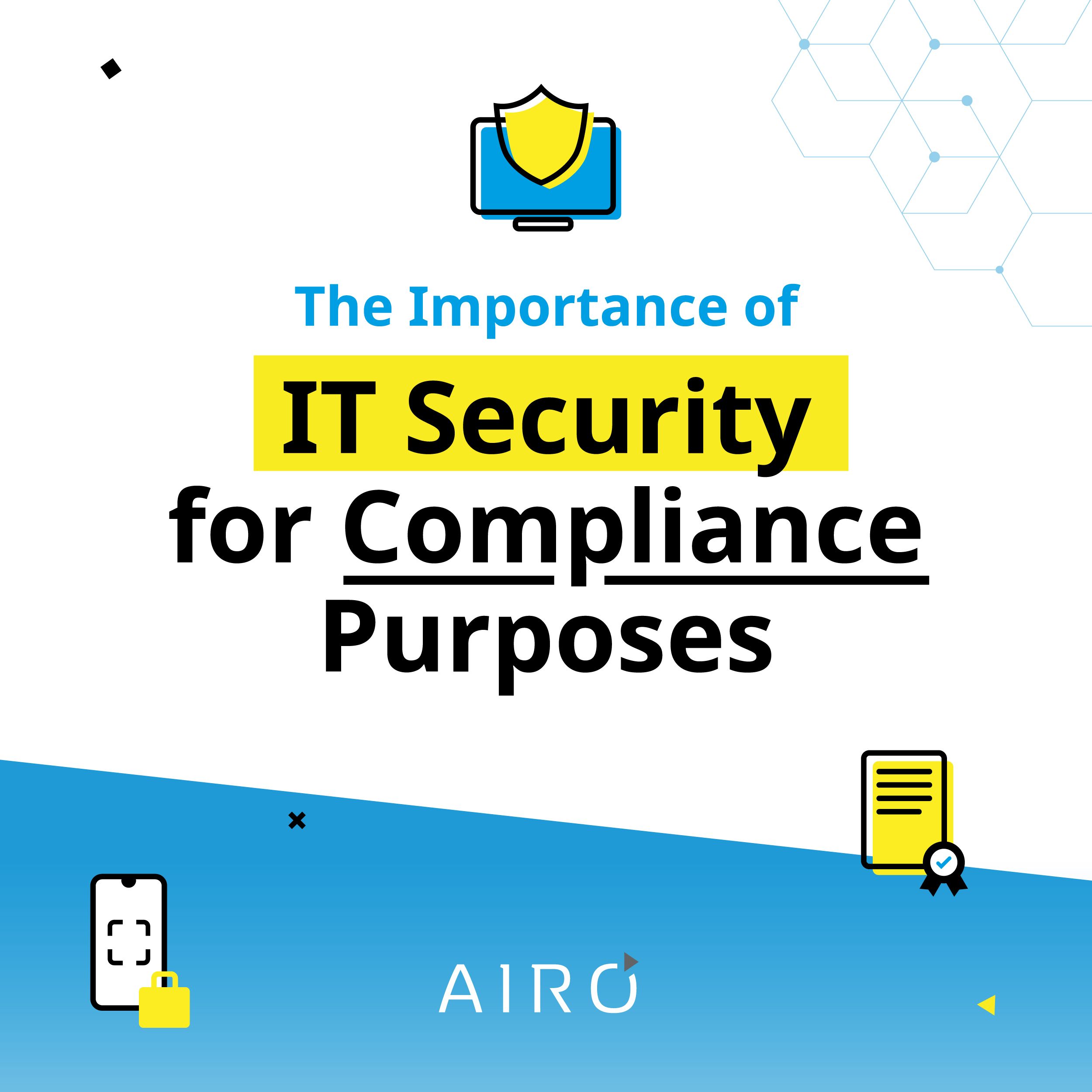
Every business has to follow regulations on security, especially those organisations that deal with sensitive customer data which could be anything from an email to an address. Effective compliance makes sure that the stopgaps in your organisation are shored up tight enough that it becomes difficult for a cybersecurity threat to get through, but another aspect that is equally important is to maintain rigorous security practices that adhere to compliance requirements.
IT compliance means that you need to stick to the local regulations established by the law. Your company is required to monitor and follow these frameworks in order to avoid hefty fines and a blow to your reputation. Failure to comply with the legal requirements might also mean that your business is not allowed to trade in certain markets or locations, something that will become increasingly difficult to follow if your organisation deals with clients from all over the world.
Here are five reasons why an active approach to IT security can enhance your ability to handle compliance requirements.
1. Better reputation
Nobody wants to do business with an organisation that might struggle to keep their data protected. Companies who have experienced a data breach see a marked decrease in customer loyalty, and sometimes it is difficult to regain their support depending on the severity of the breach itself. For example, a makeup company known as Lime Crime struggled to regain consumer trust after a security breach in 2015, aiding to the brand’s steady decline and eventual changeover of the company’s CEO.
To better adhere to compliance regulations, it is better to make sure that your IT systems take into account the severity of the protection that you need to enact on your account.
2. Avoid fines.
There’s no way around it: if you don’t adhere to regulations, there is every likelihood that you will be fined, and some of these fines can be unsustainable for businesses who are already operating on thin profits – sometimes even more so than the damage you sustain through the breach. Regulatory bodies take customer information protection very seriously, and the fines for breaches are astronomically high.
By investing in good IT security, it’s less likely that you will be dinged by a regulatory board and asked to pay a steep fine, however you must maintain your security practices at all levels of the organisation.
3. Better data management.
While not a direct benefit of strict IT security, good compliance measures will consolidate your data into one manageable block and will therefore make it easier to protect. From setting up a way to store sensitive customer information to monitoring access to that information, compliance measures set you up to succeed, even though at the outset they might seem like a strict undertaking for any enterprise – and they’ll boost IT security as an aside. Data management is easier and therefore security to protect your data might be less complicated to monitor and manage. Besides the security and monetary benefits of compliance, implementing changes in the way you store and manage your data will also make your organisation far more efficient.
4. Avoid complex legal cases.
Over 70% of businesses invest in a lot of IT security – more than is actually required by compliance. This is because strictly adhering to compliance requirements alone is usually not enough to reduce the threat of cybersecurity attacks.
In the case of a data breach where sensitive customer information is lost or exposed, there is every opportunity that your organisation will have to defend itself in court. Maintaining security practices in line with compliance requirements means that this is not a problem you will ever have to face, saving your company time, money, and reputation. Considering that legal fees take years to resolve and can become increasingly expensive over time, it’s better to play it safe and invest in good security that will help you keep you in line with regulations.
Security is more that just obeying the law: it’s also taking an active, concentrated approach to your own IT infrastructure to make sure that you have active security that can help you reduce the risk of severe threats. You can follow all the legal requirements and still be at risk, so the best thing to do is to invest in a company that can handle active security on your behalf.
This might all seem complicated to businesses on the cusp of expansion or businesses who are used to their way of doing things, but it doesn’t need to be. We’re happy to guide you through IT security options that can support your business goals without taking you away from running the company. Talk to us so we can figure out a solution that works for you.

